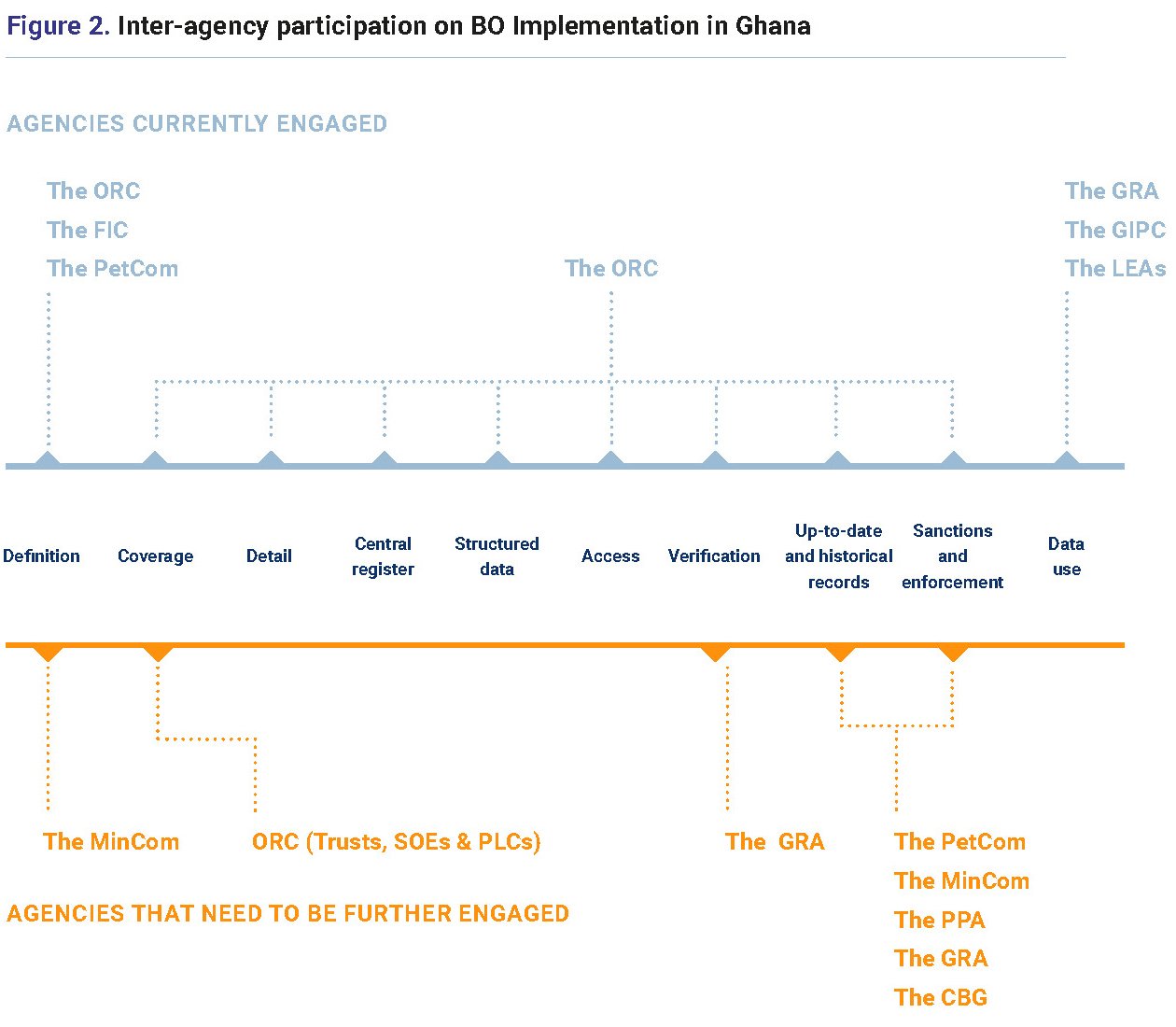Beneficial ownership transparency in Ghana
Conclusion
Overall, BO implementation in Ghana has advanced in terms of BO legislative frameworks, BO data collection systems and data management. However, there remain significant gaps, particularly with respect to effective data collection and publication systems, structured data, post-submission verification and sanction enforcement. The scoping report also revealed some challenges that inhibit effective BO disclosure in Ghana. For instance, after the handing over of the IT system from a contractor to the ORC, there have been some IT hitches that have hampered or delayed smooth BO implementation. Further, there is other support needed by the ORC, including staff capacity building and development of further internal procedures, infrastructure and systems.
Ghana’s BO implementation is led by the ORC, and there has been a lot of focus on the agency in terms of legislative reforms, development of systems and actual collection and maintenance of BO information. Although the ORC has demonstrated success in leading BO implementation, other countries’ experiences have shown that BO implementation cannot be focused on by only one agency, hence, there is a need for other agencies to play an implementing and supporting role. Without this, there is a high risk of organisational fatigue, which could hamper BO implementation in Ghana.
Below is a summary of key identified gaps:
- Limited awareness and capacity: Many businesses, government agencies and individuals may have limited awareness and capacity regarding the concept of beneficial ownership, the importance of disclosure and the procedures for compliance. This may result in incomplete or inaccurate disclosures, hindering the effectiveness of the measures.
- Complex ownership structures: Some legal entities may have complex ownership arrangements involving multiple layers of ownership, offshore entities and nominee shareholders, which could make it challenging to accurately identify and disclose BO information. Unwillingness or resistance from stakeholders to disclose their BO information due to concerns about privacy, competition or other reasons may also pose challenges.
- Sanctions and enforcement: While Ghana has established legal requirements for BO disclosure, the enforcement mechanisms and sanctions for noncompliance may be limited. This could result in lax compliance and diminish the intended impact of the measures.
- Technological infrastructure: Ghana faces limitations in its technological infrastructure, which may impact the effective collection, storage and sharing of BO information. Robust and interconnected information systems may be needed to ensure accurate and efficient disclosure of BO information.
- Inter-agency participation and coordination: The diagram below shows the extent to which the key implementing agencies are engaged with the implementation of BO reforms across each OO Principle. What this reveals is that the ORC has been at the forefront of the reforms with opportunities for further targeted engagement with other implementing agencies. That said, GHEITI has been a dominant partner with the ORC throughout the journey. A complex reform like this requires coordinated collaboration among key agencies like the FIC, the PetCom, the MinCom and the PPA which, in different ways, can support specific areas of reform.
Figure 2. Inter-agency participation on BO Implementation in Ghana
